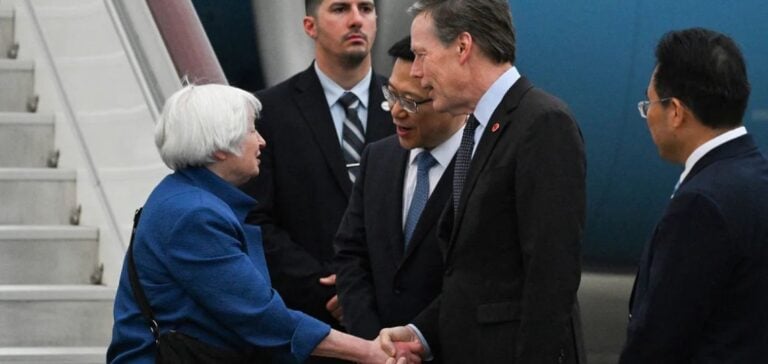US Treasury Secretary Janet Yellen makes her second visit to China in less than a year, landing in Canton after a crucial call between Joe Biden and Xi Jinping. Despite disagreements over US trade restrictions, a common desire to stabilize bilateral relations was expressed. Welcomed by the American ambassador and Chinese officials, Yellen embarked on a series of meetings designed to promote American interests in the face of China’s economic elite.
Concerns about Chinese subsidies
The United States is alarmed by Chinese subsidies for solar energy, electric vehicles and batteries. Yellen underlines the risks of overcapacity generated by Beijing’s support, similar to the issues previously observed in steel and aluminum. This policy could harm the competitiveness of American companies in these key industries.
Subsidy strategies: US versus China
In the face of criticism of US clean energy subsidies, a Treasury official defends their limited impact on the global market compared to the scale of Chinese aid. The European Union launches investigations against Chinese solar companies for unfair competition, illustrating global concerns.
Strategic dialogues and economic implications
Yellen’s schedule includes discussions with American business leaders and Chinese politicians, before heading to Beijing to conclude her visit. The focus is on Chinese subsidies, with little hope of concrete results according to experts, due to Beijing’s expected resistance on sensitive issues such as support for Moscow.
Despite moderate optimism about concrete progress, Yellen’s visit symbolizes an ongoing effort to dialogue on critical economic issues, seeking to balance competition and cooperation between the world’s two largest economies.






















